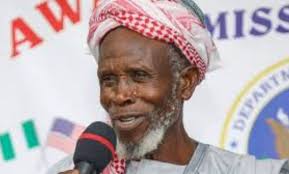Venezuela announced on Monday that it is closing its embassy in Norway, just days after opposition leader María Corina Machado was awarded the Nobel Peace Prize, triggering a fresh wave of diplomatic tension between Caracas and the West.
In a statement, the Venezuelan government did not directly reference Machado or her Nobel recognition, framing the embassy closure as part of a broader “restructuring” of its diplomatic network. However, the move has widely been interpreted as a response to the Oslo-based Nobel Committee’s decision to honor Machado’s work promoting democracy in Venezuela.
Norway’s Ministry of Foreign Affairs confirmed the embassy closure but said Caracas had offered no explanation.
“Despite our differences on several issues, Norway wishes to keep the dialogue open with Venezuela,” a ministry spokeswoman said.
“The Nobel Prize is independent of the Norwegian government.”
Machado, 58, a prominent figure in Venezuela’s fractured opposition, has long campaigned against the authoritarian rule of President Nicolás Maduro, whose 12-year tenure is widely viewed as illegitimate by many Western governments and human rights organizations. She has spent much of the past year in hiding due to political persecution.
During Friday’s Nobel announcement, Nobel Committee Chair Jørgen Watne Frydnes hailed Machado as a “key, unifying figure in a brutal authoritarian state suffering humanitarian and economic collapse.”
Maduro, in response, launched a scathing attack on the laureate, calling her a “demonic witch” in televised remarks, sparking outrage among her supporters and international observers alike.
In an interview, Machado called the award “an injection of hope, energy, and strength” for Venezuelans, saying, It reminds us we are not alone in this struggle.”
The closure of Venezuela’s embassy in Oslo comes alongside the shuttering of its embassy in Australia, another close US ally. Simultaneously, Venezuela announced the opening of new diplomatic missions in Zimbabwe and Burkina Faso, which it described as “strategic partners in the fight against hegemonic pressures.”
Analysts say these moves indicate a deliberate geopolitical pivot by Caracas away from the West and toward countries that have been more supportive of the Maduro regime.
This diplomatic rift comes amid heightened tension between Venezuela and the United States. In recent weeks, the US military has reportedly destroyed four boats carrying narcotics from Venezuela, killing at least 21 people, as part of what the Trump administration describes as an expanded war on drugs.
The strikes have drawn international condemnation, with critics in Colombia, Venezuela, and beyond accusing the US of breaching international law. Human rights advocates and legal experts have questioned the legality and proportionality of the attacks.
The situation bears resemblance to past diplomatic clashes involving the Nobel Peace Prize. In 2010, when the award was given to Chinese dissident Liu Xiaobo, Beijing froze diplomatic and trade relations with Norway for six years only restoring ties in 2016.
Venezuela’s decision now adds a new chapter to the complex intersection of diplomacy, human rights, and global politics, highlighting the symbolic power of the Nobel Peace Prize and its capacity to provoke dramatic international responses.
Erizia Rubyjeana



